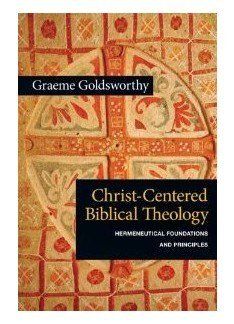Christ-centred Biblical Theology – Hermeneutical foundations and principles
Graeme Goldsworthy
Apollos
229 pages, £12.49
ISBN 978-1-84474-562-3
Star rating: *** (three)
‘The immediate appeal of biblical theology to preachers, teachers and ordinary Christians is that it provides a “big picture” that makes sense out of the bewildering bulk and variety of the biblical literature’ writes Graeme Goldsworthy. This book is a study of the presuppositions, principles and influences that have guided his own work with particular reference and gratitude to his teacher, the Australian New Testament scholar and former archbishop of Sydney, Donald Robinson.
Robinson and A.G. Hebert (an Anglo-Catholic monk) saw the Bible in three stages of revelation – from Abraham to Solomon; the eschatology of the writing prophets; and the fulfilment of all things in Christ. Goldsworthy examines a number of approaches to biblical theology and argues for the superiority of the ‘Robinson-Hebert’ schema, particularly over what he calls the ‘Vos-Clowney’ designation of the epochs with its emphasis on ‘Moses to Christ’.He defends the search for a ‘central theme’ of Scripture and proposes his (familiar) one of ‘the kingdom of God defined simply as God’s people in God’s place under God’s rule’.
Three chapters are devoted to ‘letting the Old (and New) Testaments speak for themselves’, in which the author examines the data and provides evidence for his preferred framework. There is a useful discussion of typology and chapters devoted to ‘the Robinson legacy’ and ‘How to do biblical theology’.
Overall, this book is an interesting discussion of issues foundational to the task of biblical theology. As the title suggests, it insists on the Christ-centredness of the discipline. Goldsworthy writes ‘…although faith was the operative principle throughout the old dispensation, it is incomplete without the principle that operates in the New Testament, which is faith in Christ; looking to Jesus and the gospel, Jesus is the author and finisher of our faith’. One would like to clarify: in Goldsworthy’s view, in what or whom was Old Testament faith placed? If it was not in Christ, it was not saving faith.
Any biblical theology too needs to do full justice to Adam and Genesis 1-11. Whatever his limitations Vos does this with his emphasis on covenant and his analysis of revelation in the Garden.
In a revealing footnote Goldsworthy wonders if the difference between Vos and Clowney on one hand and Robinson and himself on the other owes something to the different confessional commitments – one to Westminster, the other to the Thirty-Nine Articles which he says are ‘minimalist’ in their definition of the articles of our faith, in particular on the law – so, for example, ‘the sabbatarianism of Westminster is completely absent from the Thirty-Nine Articles’. He may be on to something here. The confessional roots and implications of differing approaches to biblical theology would make an interesting study. It is, after all, one aspect of the relationship between biblical and systematic theology.
Mostyn Roberts,
Welwyn







